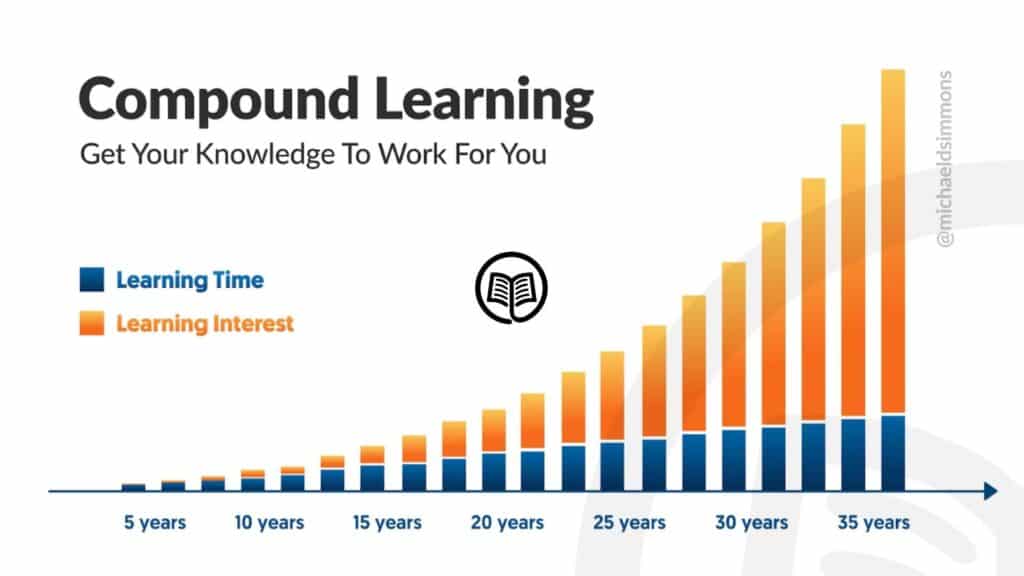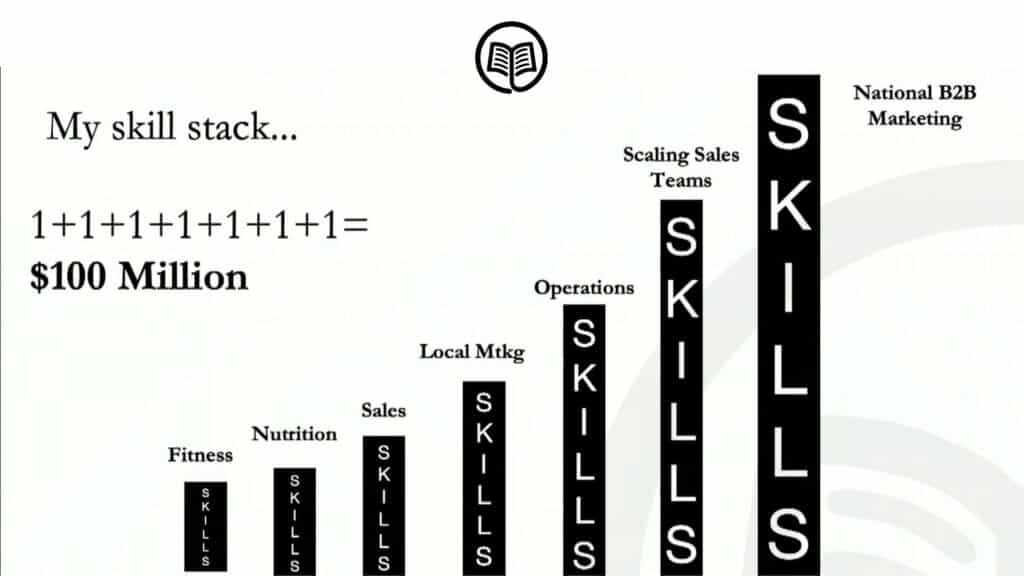I’ve recently stumbled upon this article on the big shift in the pace of modern times. I see it, especially with older people who struggle to keep up with technology. And the worst part, it’s getting faster and faster. It states that the pace at which new ideas move doubles every 10 years. So we’ll be in for a treat by the time we hit our pension age…
In his article on the topic, Michael Simmons gives 3 examples you could follow:
- Follow the pace of the crowd: In other words, do what most people are doing (i.e. get a 9–5 job and do what’s expected of you). This is the least stressful option in the short term, but you risk falling behind in the long term.
- Work harder than others: This helps you progress in your career faster, but you sacrifice time with family & friends along with personal health… not to mention that you risk losing out to people who are learning more than you.
- Outlearn others and let your knowledge compound: Learning is the ultimate productivity hack. In other words, it provides the greatest leverage. It’s the tool that the greatest innovators and business thinkers of our time (Elon Musk, Jeff Bezos, Bill Gates, Warren Buffett, and others) use to get ahead.
His, and my favourite is the third. It’s all about staying updated.
The 5-Hour Rule: The Antidote To The Exploding Pace Of Modern Life
“Read 500 pages every day. That’s how knowledge works. It builds up, like compound interest. All of you can do it, but I guarantee not many of you will do it.”
Warren Buffett
The 5-Hour Rule basically means that a lot of the most successful people in the world dedicate at least 5 hours per week to learning.
When you free up, let’s say 1 hour a day, you might get less stuff done, but over time your knowledge compounds and you’ll be unstoppable. I’ve preached this concept before in my article “How Aspiring Entrepreneurs Should Invest“. It’s all about investing in your knowledge.
For a long time, I thought that learning meant solely reading books. What a fool I was. If you’re reading this article you’re learning as well…. If you watch an instructional video, or documentary, or listen to a podcast you’re learning….
Where books come in handy is mainly for the slower and more fundamental concepts in time. For example, it’s pointless to read books on the latest web3 tech, since books move too slow. You’d be better off listening to podcasts on the subject.
Compounding your knowledge

This is a nice visual representation of the compounding effect at work. It means that you add new skills to your current skillset which helps you evolve. In Alex Hormozi’s video (on scaling your business – you can watch it here) the effect is illustrated like this:

Alex has a passion for fitness. If you watched his stuff before you’ll know what I mean. He explains how his learning of new topics compounded into his massive success over time.
You see how he evolved from making money as a personal trainer to earning money from selling Nutrition to starting and scaling his own gyms. And he didn’t stop there. Eventually, he started helping other gyms promote their business, then grow them further, and now he takes on all sorts of growth-related challenges.
This shows exactly how every newly acquired skill helped him to level up to the next level. It’s an understatement of the eight world wonder’s importance.
What’s next
It all starts with self-assessment. If you’re sales team sucks, it’s because you didn’t teach them the right processes, or because you failed to onboard the right people for the job.
If you look closely you’ll identify the points where you’re lacking behind. It’s those points that set the stage for your next educational journey.
If you identified it you have to put in the work. Find the thoughleaders on the topic, and subscribe to their mailings, podcasts, and YouTube channels. Buy their books, consume them. You know the drill.
Then, to take it a little further, find out what their knowledge is based upon. What I mean by this is that everything has its origin. There is probably some ancient book out there that describes to absolute fundamentals of the concept you’re trying to master. In order to really master the concept, find it and study it. It’s the educational counterpart of due-dilligence. Don’t just take anything you read for granted, get to the core and do your own study.
An example to complement the previous paragraph. I’m thinking and writing a lot on the subject of happiness recently. I find it the most important goal in my current phase of life. It embodies “living life on your own terms”. Anyway, on my learning journey, I noticed that a lot of authors I liked quoted Seneca. You can probably fill in the dots yourself. I’m currently studying Seneca on all the topics that block happiness. The writing is outdated but only by the examples given. If you read between the lines you’ll recognize a foundation for a lot of modern concepts.
Before you start anything, make sure you know the absolute fundamentals. It helps you to understand modern concepts way easier.
And to end with a 39-second banger. (not the one you’re thinking about right now)